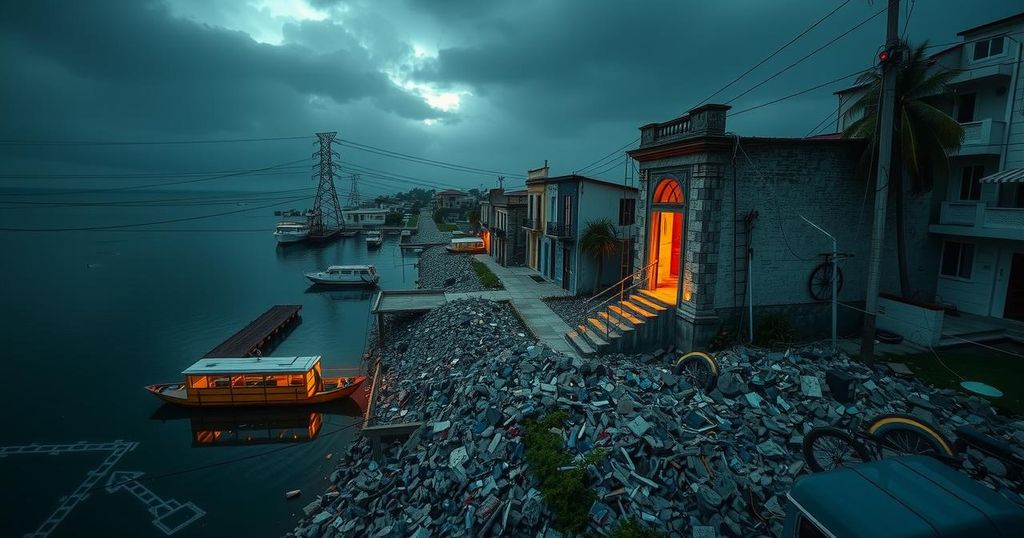A 6.8 magnitude earthquake struck eastern Cuba, following recent hurricanes and widespread blackouts. While tremors were felt in major cities and reports of minor damage emerged, there were no immediate reports of substantial injuries. This quake came during a difficult period for Cuba, marked by the devastation of Hurricane Rafael and ongoing energy crises, leading to public discontent and small protests.
On Sunday, eastern Cuba experienced a significant earthquake measuring 6.8 in magnitude. The quake’s epicenter was determined to be approximately 25 miles south of Bartolome Maso, as reported by the U.S. Geological Survey. Tremors resounded throughout eastern Cuba, particularly in major cities such as Santiago de Cuba, Holguin, and Guantanamo, with reports from Jamaica indicating felt movements as well. Fortunately, initial assessments revealed no substantial damage or injuries reported across Cuba. The residents of Santiago, Cuba’s second-largest city, experienced considerable anxiety following the earthquake. Yolanda Tabío, a 76-year-old resident, recounted the scene, stating that many individuals poured into the streets, anxiously seeking safety in their doorways. She mentioned having felt multiple aftershocks and noted that, amongst her acquaintances, none declared significant damages. “You had to see how everything was moving, the walls, everything,” she shared with The Associated Press. Others recounted hearing cries of alarm, further emphasizing the quake’s unexpected intensity. Social media disclosures indicated that the small town of Pilon experienced some minor structural damage, with images of distressed roofs and wall cracks drawing attention to the dire state of local infrastructure, which is often characterized by age and neglect. This earthquake manifested during an exceptionally challenging period for Cuba. Just days prior, Hurricane Rafael, classified as a Category 3 storm, made landfall in western Cuba, resulting in the widespread loss of electricity, extensive property damage, and the relocation of thousands of individuals. Over recent weeks, the island has grappled with recurring blackouts attributed to a severe energy crisis, which has incited public discontent. Following these outages, a powerful hurricane impacted the eastern territory, tragically resulting in six fatalities. Amid these crises, citizen grievances have catalyzed small-scale protests throughout the nation, reflecting the pervasive state of distress among the populace.
The recent earthquake that struck eastern Cuba occurs amidst a backdrop of significant natural disasters and infrastructural crises. In the days leading up to the tremor, Hurricane Rafael had already left a considerable mark on the region, with its impacts resulting in island-wide blackouts and extensive property destruction. These calamities have not only compounded the struggles faced by Cubans dealing with an ongoing energy crisis but have also fostered a climate of discontent leading to public protests. Understanding this context is crucial for grasping the implications of the earthquake and the challenges the affected communities are enduring.
The earthquake registering 6.8 in magnitude has added to the array of challenges currently confronting the Cuban people, following the devastation wrought by Hurricane Rafael and ongoing energy crises. The immediate aftermath of the tremor saw residents expressing their fear and anxiety, but thankfully, initial reports indicated no widespread damage or injuries. As Cuba continues to grapple with the consequences of adverse weather and inadequate infrastructure, the need for community support and resilience is more critical than ever.
Original Source: www.wmar2news.com






